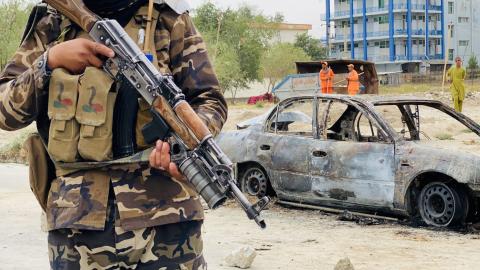Afghan Disaster Holds Lessons for Western Policy in Balkans

For 20 years, counterterrorism has been the overarching priority of US national security policy.
And at its heart was Afghanistan. Intervention was meant to be an example of solidarity and determination of allies, confident in the righteousness of their cause.
While US officials are struggling to explain what went wrong, criticism of US involvement in Afghanistan mounts every day. From India, to the UK, and to the US itself experts perceive the Afghan failure as the end of a long "Pax Americana", and question US global leadership.
Yet, one should be cautious in drawing firm conclusions. The looming end of the Euro-Atlantic world has been professed many times and long before the infamous end of the Afghan conflict. Let's not forget that the Berlin Wall fell just 14 years after the end of the Vietnam War, which was considered equally disastrous for the American global posture.
As to the Balkan region, this may be the moment to reckon again where our place is in the global equation and whether we can draw some parallels with Afghanistan notwithstanding the obvious differences that exist between our two worlds.
Western involvement in the Western Balkans has lasted almost as long as was the case with Afghanistan. It followed the breakup of Yugoslavia and the ensuing wars. In retrospect, it can be described as a bumpy, uneven road. After making numerous mistakes and allowing some tragic failures, as in Srebrenica in eastern Bosnia, in 1995, Western interventions brought an end to our bloody conflicts.
Some 111 Afghan evacuees, who have left their country following the Taliban takeover, arrive at the Pristina International Airport airport in Pristina. Photo: EPA-EFE/VALDRIN XHEMAJ
The period since the Balkan wars...
- Log in to post comments
